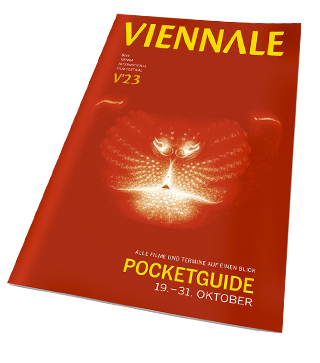"A short Q&A for a portrait" - we kindly asked filmmakers of this year's Viennale, and their answers are amazing. This is SOFIA EXARCHOU, director of ANIMAL:
1. Why did you want to make this film / tell specifically this story?
I wanted to tell a story about modern working systems in capitalistic societies. Living in Greece, I knew that the touristic industry would be the working system of my film. Then I thought about the entertainers who work at an all-inclusive hotel as the main characters of my film and with this choice, I placed also the notion of entertainment in the center of the movie. We have to entertain people to keep the system rolling.
At the same time, Animal is an allegory about any kind of labor and work. My protagonists, the entertainers, have to literally put on a costume every day and deliver their shows constantly with energy and a smile. But isn't that what all workers have to do every day?
2. What was the biggest difficulty you encountered in the making of your film, and how did you overcome it?
All the years of hard work in order to raise the funding for this film. I had to constantly redefine the film in order to keep it relevant for me and for all my collaborators. It needs a lot of persistence and redefinition in order to be able to arrive on set with the energy that is required to shoot a film over such a long period of time.
3. What would you like / hope for the audience to take away from your film?
Everything with their own eyes and their own interpretations. I would like the audience to enter the theater and follow the universe, the characters and the energy of the film without resistance. To be ready and open to "roller-coaster" with this film.
4. Which film has disturbed you most, and why?
La vie de Jesus by Bruno Dumont because of the cruelty born out of despair and the painfully beautiful portraying of these boys.
Gummo by Harmony Korine for placing the camera in front of these humans who live out of sight of society.
Workingman's Death by Michael Glawogger for its nightmarish, raw images of modern workers.
The Club by Pablo Larrain for daring to bring the viewer into the state of intimacy with these priests-perpetrators of such crimes.
Headless woman by Lucrecia Martel, where the disturbance comes from the silence and the looks of the protagonist.
5. What do you like to do to be creatively inspired?
I wish I knew. It would make for less tiring and frustrating moments in which inspiration comes and goes "irrationally". The only thing that I've noticed is that the inspiration comes more often to me when I 'm in motion like driving or walking. Maybe the movement of the body gives a push to my brain and helps inspiration to come a bit easier. It also helps me when I look at photos from still photographers. The movies don't help me very much because I 'm entering a very specific universe each time and it can be distracting but photos give a lot of space to imagination so inspiration can sometimes come after.
6. What, in your view, is the “purpose” of cinema?
Bresson says it in only a few words "Make visible what, without you, might perhaps never have been seen." This line condenses clearly these moments while watching a film, the experience of the viewer. When we are inside a theater and we are watching and confronting images, stories, ideas that we have never imagined, seen or thought before. For the filmmakers, it also condenses, in my opinion, the biggest drive to create films. To make these images visible and put them out there for everybody to see.

ANIMAL
Sofia Exarchou | Austria, Bulgaria, Cyprus, Greece, Romania 2023 | 116 min
Screenigns on
Sunday, October 29: 5.15 pm - Stadtkino im Künstlerhaus (OV w/ GER subtitles)
Monday, October 30: 4.30 pm - Metro, Historischer Saal (OV w/ EN subtitles)

